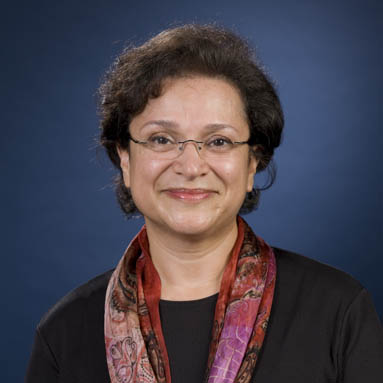• The first round of the 2016 Graduate Research Innovation Exchange (GRIE) kicked off on Wednesday, Feb. 3, as 190 master’s and PhD students presented their research posters at the day-long event in the Rubin Campus Center Odeum.
Now in its 11th year, GRIE provides an opportunity for students in all disciplines to share their research with the WPI community. During the first round, students individually present their posters to judges—including WPI faculty members, graduate students, and alumni.”
Soussan Djamasbi, associate professor in the Foisie School of Business, was on hand at this year’s event to support several of her own students and view research by others.
“Every year the event seems to get more exciting and engaging,” says Djamasbi. “I love how proud students are to present their work. They get a real sense of accomplishment when they are able to explain their research to a wider audience.”
Todd Alexander, a PhD candidate in chemical engineering who has participated in the GRIE for the past five years, agrees.
“As students we usually talk about our research with people who are already experts in our disciplines,” he says. “At the GRIE we must communicate the goals and benefits of our research without using technical terms and jargon.”
He notes that the GRIE is also an opportunity for many students to showcase the research in which they have been immersed for so long. In his case, Alexander presented findings related to research he has been working on for over four years: developing a more efficient and effective way of using tethered antimicrobial peptides to prevent infections associated with catheters and other medical devices.
On the other end of the spectrum, Chuxin Wei, a master’s student in the Foisie School of Business, shared her new research on gender imbalances in the academic field of information systems (IS). Her preliminary findings, based on data analysis, indicate that only 25 percent of IS faculty members are female and that women tend to hold lower-level positions and are more likely to leave the profession than men are.
“I’ve been working on this project for a little over a semester, and these results are just the beginning of a longer-term study,” says Wei, who notes that her next step will be to survey female IS faculty members to determine what factors may contribute to the imbalance.
Wei participated in the GREI for the first time this year and says she was excited to share her emerging research with others.
“The gender disparity in STEM fields is a significant issue right now, and people here have been really interested in my results,” says Wei.
Paulo Ferreira, a PhD candidate in electrical and computer engineering, attended the GRIE this year for the third time to present his research developing intelligent radio algorithms that will make wireless communications between earth and satellites in outer space more robust and reliable.
Ferreira, who was selected as a finalist at last year’s GRIE, says that one of reasons he continues to participate each year is the chance to network with other researchers at WPI.
“I have really benefited by being able to not only share my research experiences with my colleagues at the event,” he says, “but also keep up to date with their recent discoveries.”
Up to 60 finalists from the first round of the GRIE will be selected to move on to the second round on April 11, which will be held in conjunction with the i3: Investing in Ideasoral presentation competition. GRIE finalists, along with the People’s Choice Award winners for morning and afternoon sessions, will be announced and available online through theOffice of the Provost.


